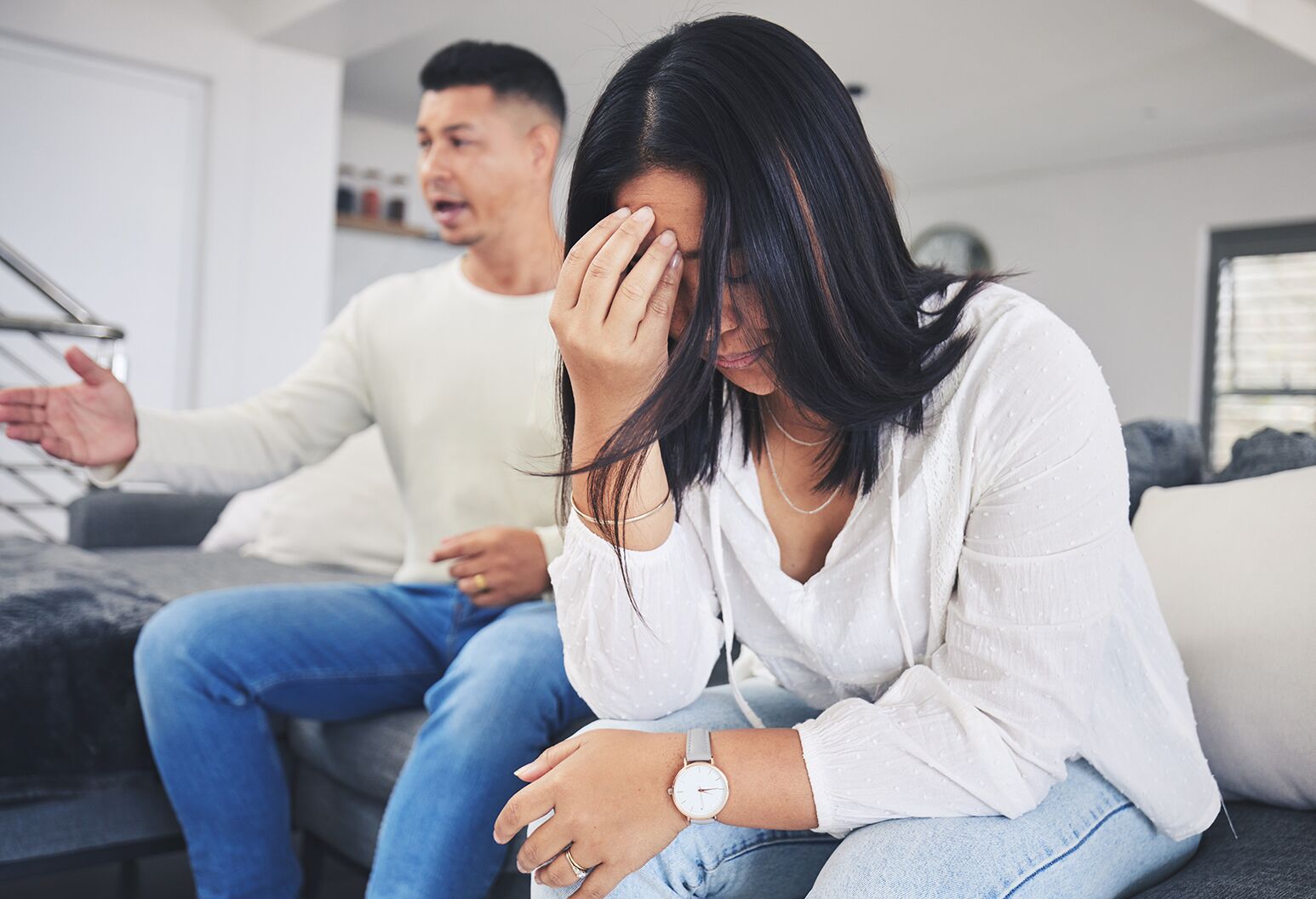relationships/sexual health
Going No Contact: 5 Things To Know

A licensed marriage and family therapist explains how to end the trauma bond cycle.
3 min read
I was in a yearlong toxic relationship that can best be described as a trauma bond. It was difficult, but I finally broke it off. The problem is, I miss him. I know he was bad for me, but he was also a big part of my life and I’m afraid I’ll go back. Do people ever successfully leave relationships like these?
Sincerely,
“Fighting Those Feelings”
There are seven stages that typically make up the cycle of trauma bonding—and it’s no coincidence the final stage is known as addiction. Each stage builds on the previous one to keep two people locked in a continuous pattern until someone leaves. Escaping isn’t easy, and I commend you for having the fortitude to extricate yourself.
What’s challenging about breaking free from a trauma bond is that the relationship isn’t all bad. Yes, trauma bonding is unhealthy and, frankly, dangerous because it ultimately leads to the victim’s loss of self. But the abuser is a master of manipulation and will go overboard with affection to keep you on the hook, especially if they sense that you’re pulling away.
Sometimes, the abuser in a trauma bond starts out in a heroic role. Maybe they got you out of a bad situation or provided a better life than you were living before. That’s why, even when you know the relationship was harmful to your well-being, you may find yourself missing the good times and remembering only the loving side of your ex.
Again, keep in mind that manipulation is a large part of the trauma bond. You’ve been conditioned to question your own judgment and disregard those warning signs in your gut. You may even be convinced that you were meant for each other—that you’re the only person who truly “gets” him.
Like other addictions, it’s normal to experience withdrawal when you finally remove yourself from the relationship. My advice is to practice self-care (as cliché as that sounds). Be kind to yourself and reset your expectations. Your trauma bond didn’t happen overnight and feeling better won’t either.
Try to have self-compassion and stay in the present rather than revisiting the past. Work on rekindling those friendships that may have fallen apart because of your relationship.
A key part of trauma bonding is losing your sense of identity and your agency to make decisions based on your own needs and desires. Your recovery should include reengaging in activities you enjoy, such as a hobby, a fun workout, enrolling in a class, or bingeing a show you love. I also encourage journaling as a way to connect to your feelings and track your progress, as well as talking to a mental health professional.
Know that you’ll have good days and bad days, but just because you miss elements of your relationship, it doesn’t mean you have to go back. Good luck!
The Well is Northwell Health’s commitment to the future of health care. In this time of information overabundance, much of which is inaccurate, unhelpful, or even difficult to understand, Northwell Health is on a mission to make a difference as an honest, trusted, and caring partner. The site connects with consumers to provide them with personalized content that reduces their stress, makes them laugh, and ultimately feel more confident and capable on their healthcare journey.